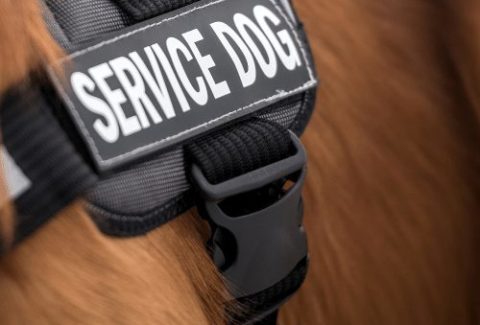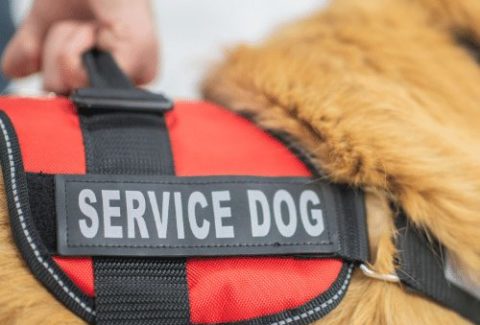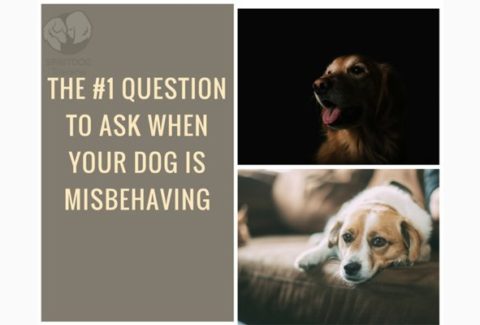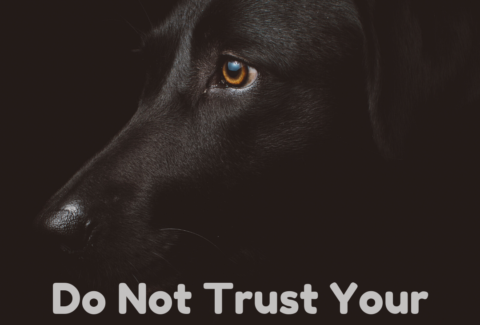Do You Really Want A Working Dog?
May 19, 2021 2021-08-26 9:44Do You Really Want A Working Dog?

Every week, multiple times, I am on a house call with a family that has adopted a working-bred dog. And every week, multiple times, I need to tell the owners that I don’t have a magical solution to the dog’s high energy, need for mental and physical stimulation, constant desire to problem-solve and inherent ability to find ways to fight boredom. If a dog was born a working dog – well, then he is going to be a working dog.
Whether you picture a German Shepherd, Border Collie, German Shorthair Pointer or Giant Schnauzer while reading this, you have probably met (or even owned) a dog that was born to work, and that was determined to find himself some sort of work in life (whether intended by the owner or not).
What We Bred Them For
No other species has been bred and developed with an approach even close to being as extensive as the approach our ancestors took to developing different dog breeds. The amount of different traits, personalities, physical appearances and working types we can find in dog breeds across the globe is incredible.
To this day I often look at the client’s dog I am training and marvel how we were able to come this far, starting from a wolf – whether that be a little, feisty Terrier; an elegant Saluki; a tiny Italian Greyhound; a slow and thoughtful Great Pyrenees or a high-strung Doberman.
To think that they all started out from exactly the same species and were developed into their many current forms solely by thoughtful selection and consistent improvement still blows my mind.
What comes with this vast variety however is a very strong disposition to do what we bred them for.
Until not too long ago in history, owning a dog purely for the fun of it was a privilege only the wealthy could afford. Some breeds were developed to be companions first and foremost for these people.
The majority of the population however owned dogs because they needed their help in daily chores – whether these were keeping livestock safe or moving it, hunting, guarding the property or else.

Our ancestors relied on having their dogs work tirelessly all day. Quitting after an hour or two was absolutely not an option. A dog who would need frequent naps throughout the day or flake out on the job was not a dog who would be bred to pass on his genes. The ones that did get bred were great at their job, resilient workaholics.
What They Do Now
The times have changed for our working dogs. The majority of them nowadays certainly does not need to assist their humans from sun up to sun down every day. Instead of going to work on farms, we go to work in offices and our dogs, staying home, have little left of their original jobs.

Inside them though, their genetics are strong: Strong with desire to do something, to work, to move, to be active, to achieve and accomplish. This can become a real problem when all the work we have left for our working dogs is a daily walk around the block and a visit to the dog park twice a month.
Our dogs’ genetics have not changed as quickly as their living situations. They are not ready to chill on the couch for 12 hours a day.
And Now The Problems Start …
One thing working dogs are really good at is finding something to do. And if we as the owners are not able to offer them good choices for this, we will certainly not like the choices the dogs make in finding themselves a job.
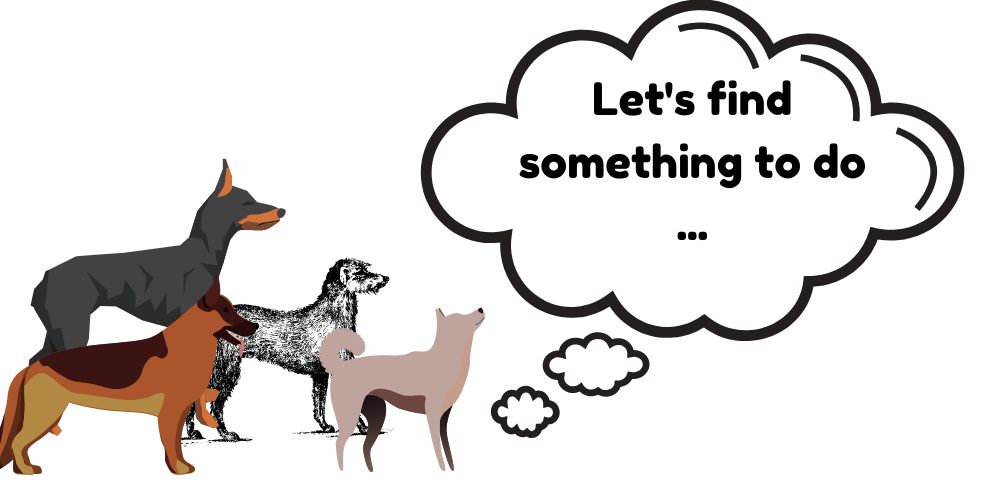
I have in my years as a dog trainer seen quite amazing ideas dogs have had in entertaining themselves when they were not challenged sufficiently- neither mentally or physically.
Here is a little list of some dogs that stuck out in my memory:
- There was the adult Doberman who was mouthing his family and every object in his house all day, every day
- There was the Border Collie who would stare at clouds for hours
- There was the Terrier who would bark incessantly and dug an 8 inch deep hole into the sofa
- There was the Border Collie who would, motionless, stare at dust particles all day long in the yard while the owner was at work
- There was the German Shepherd who could jump 5 feet in the air in front of a window, and would do so for hours
- There was the Livestock Guardian mix who would lick his paws until raw
In general, excessive barking, destructiveness, difficulty to focus and engaging in obsessive behaviors are common signs of a bored and underworked working dog.
Some owners enroll their dog for weekly obedience classes. This can at times even be more discouraging as the dog, when he finally gets to work for one hour every week, goes a little ballistic with excitement and actually often does not excel at the task.
He doesn’t fail due to lack of intelligence or being “untrainable”, but rather over-arousal and inability to calm down enough to be perceptive to training (because how can he be calm when he has the built-up energy of a whole week inside him?).
This is also applies to Doodles – even though they look so dorky and cuddly. Yep – your Schnoodle, Bernedoodle or Sheepadoodle is actually a high energy cross of athletic working breeds!
Owning a Working Dog is a Daily Commitment
The good news is that your dog most likely does not need to participate in his original job to be happy and manageable (with the exception of some bite sport and hunting dogs). I personally know hundreds of well-balanced herding dogs who have never seen sheep in their lives. Instead they go for a daily swim or long hike, dog-dance, do agility, play frisbee, do nosework, learn tricks, go backpacking or compete in rally or obedience.
Your dog probably does not even need a “job” in the context of a specific sport (though I am sure he would love to try out sports): a healthy balance of sniff walks, thinking games, food puzzles and some toy play can already keep him entertained, busy and out of trouble.
Some of my “star working breed clients” are neither the most athletic people nor do they compete in any kind of sport – there is for example the retired couple who own a Doberman. He goes to the park every morning, takes a long sniff walk every night and practices tricks and obedience 2-3 times a day in between. He is an amazingly socialized, well-mannered and balanced dog.
Your dog however does need some sort of daily entertainment. Ideally, this entertainment would be a combination of physical exercise and mental challenges. A working dog does not want to stay inside during the work week and only have an outing on the weekend. Don’t try it – it will probably not go well (see my experiences above).
They Are Amazing Partners

The more you engage with your dog, the better and more perceptive he will become. Working dogs are – well – workers, and they will gladly learn the 154th trick with you, go for the 5th walk of the day and then curl up next to you at the end of the day. Their commitment and dedication towards their owner and anything they do is amazing to experience.
If you like to spending time with your dog, figuring out training challenges, thinking of new ideas for engagement and enrichment and look for a long-term partner, a working dog might actually be exactly what you want.
Happy Training!
Steffi Trott
Related Posts
Does Your Dog Sniff Too Much? Let him.
Tips For Preventing Resource Guarding in Dogs
Do Goldendoodles make good service dogs?
Best Service Dog in Training Vests
How To Train A Herding Dog
The #1 Question To Ask When Your Dog Is Misbehaving
Do Not Trust Your Aggressive Dog
I Don’t Know The Magic Word
Check out our effective and affordable online dog training courses!
-
Sale Product on sale
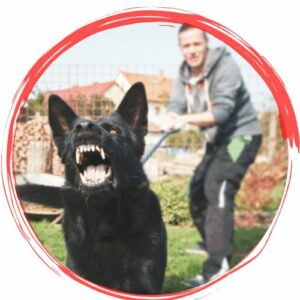 Tackling Reactivity Bundle
Tackling Reactivity Bundle
MONEY BACK GUARANTEE$564.00$49.00 -
Sale Product on sale
 Perfect Obedience Bundle
Perfect Obedience Bundle
MONEY BACK GUARANTEE$349.00$49.00 -
Sale Product on sale
 Ultimate Puppy Bundle
Ultimate Puppy Bundle
MONEY BACK GUARANTEE$416.00$49.00 -
Sale Product on sale
 The Perfect Focus Bundle
The Perfect Focus Bundle
MONEY BACK GUARANTEE$445.00$169.00 -
Sale Product on sale
 Ultimate Masterclass Bundle
Ultimate Masterclass Bundle
MONEY BACK GUARANTEE$2,213.00$499.00



